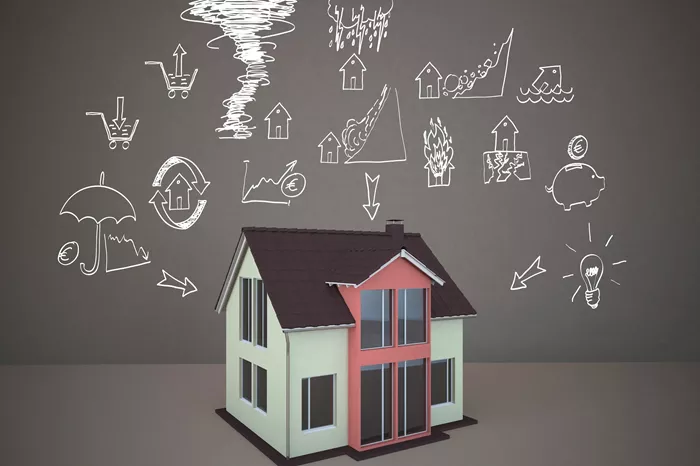Home insurance is designed to provide financial protection against various risks, from natural disasters to theft. However, the process of filing a claim can have several repercussions on your insurance policy. Understanding how a claim affects home insurance is crucial for managing your coverage effectively. This article delves into the consequences of making a claim, examining its impact on premiums, deductibles, coverage limits, and overall insurability. By gaining insight into these aspects, homeowners can better navigate their insurance policies and make informed decisions.
Understanding Home Insurance Claims
A home insurance claim is a request for financial compensation from your insurer for damages or losses covered by your policy. Claims can arise from various incidents, including:
Fire
Water Damage
Theft
Vandalism
Natural Disasters
The process involves reporting the incident, assessing the damage, and receiving compensation based on your policy terms. Each claim can affect your insurance policy differently.
Impact on Premiums
One of the most noticeable effects of filing a claim is the potential increase in your premiums. Here’s a detailed look at how claims can influence your insurance costs:
Immediate Premium Increases
After a claim, insurers often increase your premium at renewal. This adjustment reflects the higher risk associated with your property. Factors influencing the extent of the increase include:
Type of Claim
Major incidents like fires or floods may result in a higher premium increase compared to minor claims.
Claim Frequency
Multiple claims within a short period can lead to more significant premium hikes than a single claim.
Insurer Policies
Each insurer has different policies regarding premium adjustments post-claim. Some may offer discounts for claims-free records, while others may penalize frequent claims.
Long-Term Effects on Premiums
The impact of a claim on your premiums may extend over several years. Insurers review claims history during each policy renewal, and repeated claims can lead to higher premiums or difficulty securing affordable coverage.
Annual Reviews
Insurers typically assess your risk annually, and a claims history can lead to a progressive increase in premiums.
Policy Renewal
Frequent claims may result in non-renewal or limited options from your current insurer.
Deductibles and Claims
Your deductible is the amount you pay out-of-pocket before your insurance coverage kicks in. Claims can affect your deductible in several ways:
Increased Deductibles
Following a claim, your insurer might adjust your deductible. This means you’ll have to pay a higher amount out-of-pocket for future claims.
Risk Management
Insurers use higher deductibles to manage risk and discourage frequent claims.
Policy Adjustments
A higher deductible can be a condition for maintaining coverage after multiple claims.
Impact of Frequent Claims
Frequent claims can lead to higher deductibles, making it more expensive for you to file future claims.
Cost Implications
Higher deductibles can strain your finances, especially in the event of multiple claims.
Insurance Terms
Insurers may impose higher deductibles as a standard policy adjustment for high-risk customers.
Coverage Adjustments
Claims can lead to changes in the coverage provided by your home insurance policy. Here’s how:
Policy Limits
After a claim, your insurer may reassess and adjust your policy limits. This means you could have reduced coverage for future claims.
Lower Limits
Insurers might lower your coverage limits based on the perceived increased risk of your property.
Increased Risk Factors
Adjustments are often made if the damage or loss frequency suggests a higher risk.
Exclusions and Endorsements
Certain types of damage might be excluded from your coverage following a claim. To address new risks, you might need to add endorsements to your policy.
Exclusion of Specific Risks
Frequent claims for certain issues may lead to exclusions, such as water damage or theft.
Additional Coverage
You might need to purchase additional endorsements to cover risks not included in your standard policy.
See Also: Why Is Home Insurance so High in Texas?
Claims History and Insurability
Your claims history can affect your ability to secure home insurance in the future:
Future Insurance Applications
A history of multiple or severe claims can make it challenging to obtain home insurance from other providers. This is due to the increased risk associated with your property.
Higher Premiums
Insurers may offer coverage but at significantly higher premiums.
Policy Denial
Some insurers may deny coverage based on a history of frequent claims.
Insurance Scores
Insurers use claims history as part of their underwriting process, which can impact your insurance score and affect your future insurance options.
Lower Insurance Scores
Frequent claims can lower your insurance score, leading to higher premiums and fewer options.
Underwriting Challenges
Insurers may view you as a high-risk customer, complicating the process of obtaining new coverage.
Handling and Managing Claims
Effective claim management can mitigate the impact on your insurance policy. Consider these strategies:
Preventive Measures
Implementing preventive measures can reduce the likelihood of future claims and potentially lower your premiums.
Security Systems
Install alarms and surveillance systems to reduce the risk of theft.
Regular Maintenance
Maintain your property to prevent damage from issues like water leaks or structural problems.
Effective Claim Management
Properly managing your claims involves thorough documentation and cooperation with your insurer.
Document Damage
Keep detailed records of the damage and repair work, including photos and receipts.
Understand Your Policy
Familiarize yourself with your policy’s coverage limits and exclusions to avoid surprises.
Work with Adjusters
Cooperate with insurance adjusters and provide all necessary information for a fair assessment.
The Role of Insurance Agents
Your insurance agent plays a crucial role in managing the impact of claims:
Expert Advice
Insurance agents can provide valuable guidance on handling claims and understanding policy implications.
Claim Strategy
Agents can help you develop a strategy for managing claims and minimizing their impact on your premiums.
Policy Adjustments
They can assist in adjusting your policy to better suit your needs and reduce future risks.
Policy Review
Regular reviews with your agent can help you understand your coverage and make necessary adjustments before a claim occurs.
Coverage Updates
Regularly update your policy to ensure it matches your current needs and risk levels.
Preventive Measures
Agents can advise on preventive measures to lower the risk of future claims and potentially reduce premiums.
Conclusion
Understanding how a claim affects home insurance is essential for managing your policy effectively. From increased premiums and higher deductibles to potential changes in coverage, the impact of a claim can be substantial. By implementing preventive measures, managing claims efficiently, and seeking guidance from insurance professionals, you can navigate the complexities of home insurance and maintain appropriate coverage for your property. Awareness of these factors ensures that you are well-prepared to handle claims and safeguard your home effectively.






















